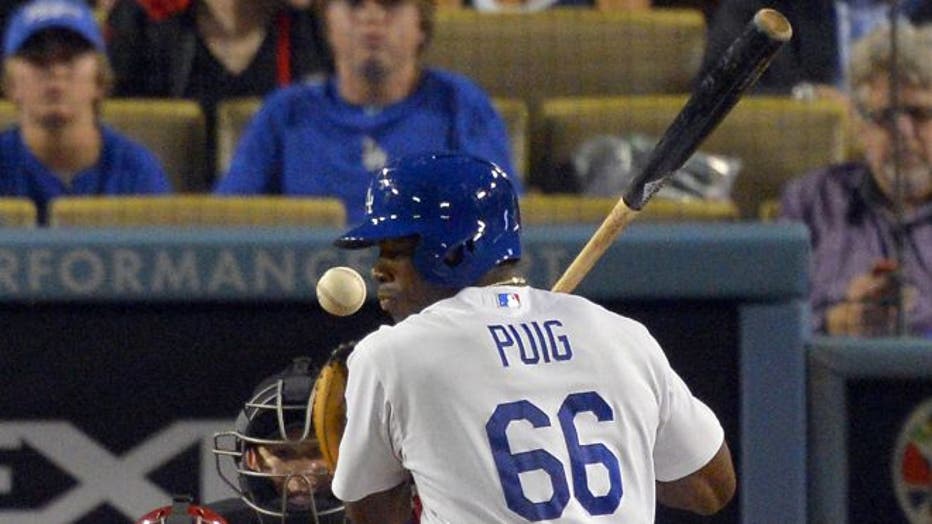Cuba lifts ban on athletes playing for professional teams
By Kevin Baxter, Los Angeles Times
Cuba's government has lifted its ban on professional sports, allowing athletes to sign contracts and compete for pay outside the island.
The change will make it easier for Cubans to compete professionally in Europe and Asia, but it does not necessarily mean a new wave of Cuban baseball players will be landing in Major League Baseball. Professional sports in the United States are still bound by a 51-year-old embargo that bans nearly all business transactions between Americans and the Cuban government.
John Sullivan, spokesman for the U.S. Treasury Department's Office of Foreign Assets Control, said Cuban players must be "unblocked" by a license from his office before they are allowed to speak with big league organizations. To qualify for a license, the players must prove they have established permanent residency outside Cuba.
MLB rosters included 21 Cuban natives this season. Nearly all defected.
In a statement, MLB noted it would continue with business as usual. "MLB and its clubs have and will continue to act in accordance with the laws and policies of the United States government," the statement said.
Cuba's change came during a recent session of the Council of Ministers under the direction of President Raul Castro, and was announced in the Communist Party newspaper Granma. Cuban athletes would be permitted to compete in foreign leagues as long as they paid taxes on their earnings and fulfilled athletic commitments at home by competing for Cuba in international competitions such as the Olympic Games. For baseball players, that could mean playing in the nation's domestic league, which runs from November through April.
The new policy was hailed by some observers as a breakthrough, and by others as a ploy to stem the tide of defections that has seen more than 200 baseball players and dozens of other athletes flee the country in the past two decades.
Cuba has sent athletes and coaches to play in foreign leagues and work with national federations in several dozen countries for years. For example, in 2002, former national team baseball stars Omar Linares, Antonio Pacheco and Orestes Kindelan — who were long beyond their primes — were lent to Japanese clubs. And nearly a decade before that, long jumper Ivan Pedroso, high jump record-holder Javier Sotomayor and five other track and field athletes signed with a Spanish track club. Cuban volleyball players have competed in professional leagues in Italy for years.
In most of those cases, however, salaries were paid not to the athlete but directly to the Cuban government.
Cuba began testing the new policy this summer when it allowed infielder Michel Enriquez and outfielders Yordanis Samon and Alfredo Despaigne, a three-time MVP in Cuba's elite Serie Nacional, to play for Campeche of the Mexican League, which is affiliated with minor league baseball in the U.S. Negotiations have already begun to bring more Cubans to Mexico next summer.
"I'm very happy for Cuba, they changed," said Seattle Sounders midfielder Osvaldo Alonso, who defected in 2007 and became a U.S. citizen last year. "They allowed the opportunity for the players to grow in their sport."
Granma also reported that athletes who remain in Cuba will be paid better. For example, baseball players who compete in the 90-game national series will see their pay more than double, to $41 a month, with another $41 for leading the league in various statistical categories. Some athletes will also be eligible for a monthly stimulus award for international achievements, ranging from $26 for making a national team to $104 for an Olympic gold medal.
The hikes may not stop top athletes from trying to leave the island, though. Consider: Alonso will make more than $200,000 playing soccer this year, and defector Yasiel Puig has a seven-year $42-million deal with the Dodgers.

Yasiel Puig photo courtesy of Fox News

